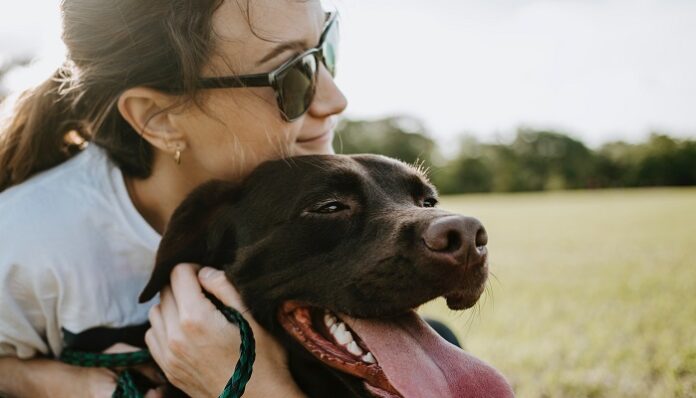
If you ask anyone how they feel about their pet, they will probably correct your use of the word “pet” before going into a long spiel about how their cat, Dr. Watson, or their dog, Marky Mark, are not pets at all, but actual family members. How dare you!? Can’t you see that Dr. Watson and Marky Mark are their babies?!
And, as a pet owner, I totally understand it. When someone calls my baby, a “dog,” I, too, point out their error. Hubbell may technically be a dog, but to me, he’s more human than most people. If you don’t own a pet, then there’s a good chance you find this way of thinking absurd. That’s OK, because science has our back on this one.
A new study has found that women really and truly think of their dogs as their children, but with more fur.
Researchers looked into brain activity of a group of women who have at least one child between the ages of two and 10, and who were also dog owners at the same time. Between questionnaires and the showing the women photos of both their children and dogs, the results were quite clear. When it comes to babies and dogs, women don’t see a difference. In fact some of their brains responded stronger to photos of their dogs than their kids.
As lead researcher of the study, Lori Palley of Massachusetts General Hospital, explained, “Pets hold a special place in many people’s hearts and lives, and there is compelling evidence from clinical and laboratory studies that interacting with pets can be beneficial to the physical, social and emotional wellbeing of humans.”
The positive effects that pets have on human beings have even spilled over into the workplace. Some businesses allow their employees to bring their dogs to work. “Dogs were domesticated to be attentive to us,” explains clinical social worker and therapist, Deb Havill. “It is natural for us to be around them, so to not be around them would be unnatural. We would be in an unnatural state.” See? We need them. We can’t live without them.
Takeaway? Pets, or furry babies, evoke strong emotions and feelings in humans.
The intensity of our love for them is clearly visible in functional magnetic resonance imaging, where the parts of the brain associated with “emotion, reward, affiliation, visual processing, and social interaction” all show increase in activity when we, the women pet owners of the world, see photos of our little bundles of joy.
So, the next time you overhear a woman telling their dog, “Oh! You made mommy so proud when you caught that ball,” don’t roll your eyes. That furry little monster is her baby, both in heart and in her brain.
Originally written by Amanda Chatel on YourTango
Feature Image by Wade Austin Ellis on Unsplash


















